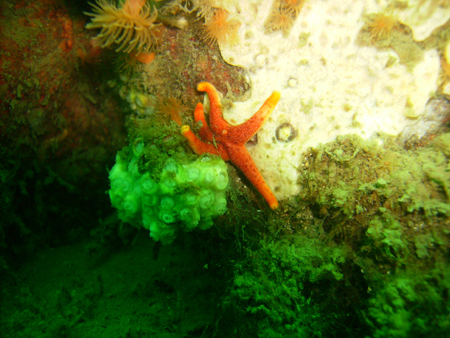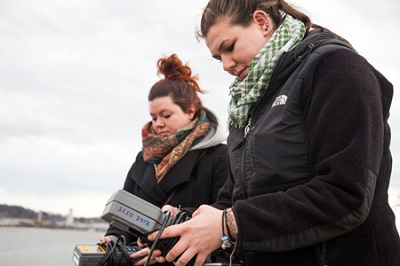
Southern Connecticut State University is located centrally along the heavily urbanized Connecticut coastline proximate to a variety of diverse natural habitats. This setting provides excellent opportunities for research and education focused on the pressures of human development and the need for the preservation of these natural habitats. Long Island Sound has been designated as an estuary within the National Estuary Program, a program designed to protect nationally significant estuaries throughout the United States. More than eight million people live within its watershed, and its waterways represent a major site for recreation, transportation, and fishing activities. Long Island Sound is also a repository for wastes and contaminants derived from various sources, including rivers and streams, urban and agricultural runoff, wastewater treatment plants, airborne transport, disposal of dredged material and tidal exchange with the New York City area. The high population density surrounding Long Island Sound and the resultant competition for resources within the estuary present unique problems and opportunities for students, educators, and scientists.
The Center will respond to the needs of the university and the community in direct and tangible ways. The efforts of the faculty, staff, and students associated with the Center will focus on coastal and marine environmental/ecological research and education along Connecticut's urbanized coast and harbors. The emphasis will be on applied research, including faculty-directed student research, designed to address issues of local and regional importance. Ongoing student-faculty research that would be incorporated into the Center's portfolio include distribution and concentration of heavy metals in Connecticut harbors, loss of coastal wetlands, storm impacts and beach erosion, landscape ecology, conservation biology and habitat selection and ecology of invasive species. The results of such studies will be made available to resource managers and educational institutions via outreach efforts that could include Center publications, publications in peer-reviewed journals, public talks, conferences, consultations, and educational materials.

In terms of enhancing education at the university, the Center will foster collaborative research and pedagogical initiatives among faculty across traditional academic departments in different disciplines. The interdisciplinary nature of coastal marine research will be used to provide a broad spectrum of students with opportunities to learn science by doing science. Through the establishment and monitoring of a series of field sites throughout the region, the Center will provide opportunities for faculty and students to participate in scholarly activities, and to incorporate the results of such activity into their teaching. Science is a process which cultivates skills such as experimentation, observation, inference, collaborative discussion and critical thinking. Because they are field-oriented, environmentally relevant, and multidisciplinary in nature, the marine sciences are uniquely suited for introducing undergraduate students to the dynamic and interdisciplinary nature of scientific research.
